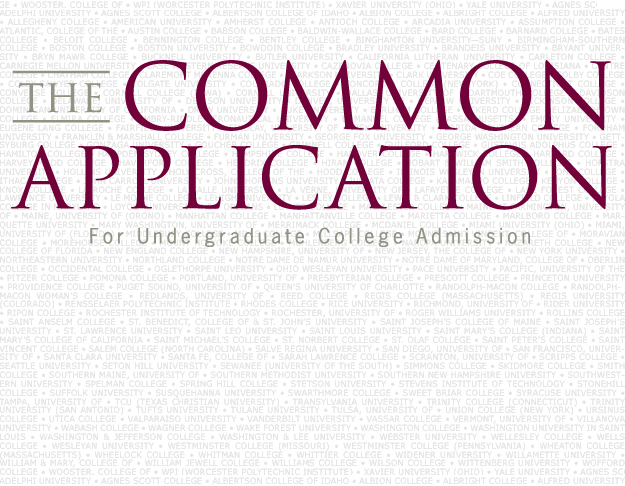Freitag, 8. Juli 2016
What I needed to apply!
[German]
In meinem ersten Post hatte ich versprochen nochmal auf die Tests und den Bewerbungsprozess zurück zu kommen, die ich dort erwähnt habe.
Um in den USA studieren zu können muss man einige standardisierte Tests absolvieren, die sind and fast allen Hochschulen Pflicht, nur welche Hochschule welchen Test verlangt kann abweichen. Für Bewerber die nicht muttersprachlich englisch sprechen (z.B. Ich!) wäre da zunähst einmal der TOEFL (Test Of English as Foreign Language). Hier geht es wie der name schon sagt um die Englischkenntnisse, der Test besteht dazu aus Reading, Speaking, Listening und Writing. Im TOEFL sollte jeder der ganz ordentlich Englisch gut durch kommen. Dann wird es schon schwieriger, denn die anderen Tests muss jeder amerikanische Student auch machen, dem entsprechend nimmt hier keiner Rücksicht auf Nicht-Muttersprachler.
Als nächstes hatte ich die Wahl zwischen dem ACT oder dem SAT, beide sollen die allgemeine Bildung testen, Englisch, Mathe etc. Ich habe mich für den ACT entschieden, der besteht im wesentlichen aus fünf Teilen: Grammatik, Mathe, Lesen, Naturwissenschaften und Schreiben. Außer den Schreib-Aufgaben sind alle Fragen im Multiple-Choice-Format. Jetzt denken einige wahrscheinlich: “Das ist ja einfach!“ Weit gefehlt! Das Fragen-Format ist vielleicht nich allzu schwer und die Fragen an und für sich auch nicht, aber der Zeitdruck macht's! Im Reading-Teil z.B. hat man 35min für 40 Fragen inklusive dem eigentlichen Lesen der Texte. Ich ganz zufrieden mit meinem Abschneiden, nur im Mathe-Teil hätte ich noch etwas besser abschneiden können.
Mein dritter und vierter Test waren die sog. SAT Subject Test oder auch SAT II. Dabei handelt es sich um einen Test, der das Wissen in einem bestimmten Fach abfragt, in meinem Fall Mathe und Physik. In Physik war ich mit der vollen Punktzahl ganz zufrieden, aber in Mathe war leider noch Luft nach oben. Auch bei diesen Tests ist das Format ganz anders als in Deutschland z.B. in einer Klausur. Während man in eine Mathe Klausur meistens drei bis vier längere Aufgaben mit mehrere Teilaufgaben hat, die aufeinander aufbauen, gibt es hier 50 vollkommen unabhängige Fragen in 60 min. Glücklicherweise konnte ich alle Tests in der Internationalen Schule in Düsseldorf ablegen, so das ich nicht zu weit fahren musste.
Der Rest der Bewerbung geht dann vollständig online. Viele der US-Unis nutzen die sog. Common Application, dabei handelt es sich um ein Webportal in dem man die Fragen der “Bewerbungsbögen“ beantworten muss und mehrere “Essays“ einreichen muss, anhand dieser entscheiden die Unis über die Zulassung. Da ich mich an den Unis auch um “Financial Aid“, auf deutsch etwa “finanzielle Unterstützung“, beworben hatte musste ich zusätzlich auch noch die finanzielle Situation meiner Familie offenlegen. “Financial Aid“ ist eine Art Stipendium dessen Höhe sich daran orientiert wie viel die Familie des Studenten in der Lage ist beizutragen, den Rest übernimmt im Idealfall das College. Wenn man sich die Kosten für ein Studium in den USA anguckt, z.B. in Haverford inkl. Studiengebühren, Unterbringung und Verpflegung ca. $66000, ist wohl den Meisten klar, dass nur die allerwenigsten Familien sich das ohne Probleme leisten können.
[English]
In my first post I promised to come back to the Tests I had to take and the application process in general.
To be able to study in the US you will need to take some standardized test, these tests are required at almost all colleges, it might differ from one college to another which test are required. For non-nativ speakers of English the first Test to take is the TOEFL (Test Of English as Foreign Language). This test obviously is about knowledge of the English language. It is made of four parts: Reading, Listening, Speaking and Writing. The TOEFL shouldn't be to hard for anybody who speaks fairly good English. Now it is getting more difficult as the other test are to be completed by any american student too, so there is no consideration of non-native speakers.
For the next test I had the choice between the ACT and the SAT, both are meant to test your general eligibility to go to college. Ich decided to take the ACT, which consists of five parts: Grammar, Math, Reading, Science and Writing. Apart from the writing assignment all questions are in a multiple-choice format. Some of you might say: “That sounds easy!“ But indeed it is not! The questing format and the questions themselves aren't that difficult, but it is the time pressure that makes the test difficult. For example in the reading part you got only 35min for reading a few texts and answering 40 questions. All in all I was satisfied with my scores in the ACT, but I could have reached a few more point in the math section.
My third and forth test were the so called SAT Subject Test or SAT IIs. These are tests on your knowledge in a particular subject, in may case math and physics. In physics I was quite happy with the best possible score, but I could have done better on the math test. The format of these test is completely different from exams in Germany. While you usually have three to four larger tasks in a math exam in Germany with several interdependent subtasks, the math test featured 50 completely independent questions in 60min.
Luckily, I was able to take all these test at the International School of Düsseldorf and did not need to travel too far.
The remaining part of the application is entirely online. Many US-Colleges use the so called Common Application, which is a wep-portal to fill out the application forms and submit your essays. Based on this information your application is judged. As I had applied for “Finacial Aid“ I also needed to reveal my family's financial circumstances. “Financial Aid“ is some kind of scholarship whose amount is based what amount the student's family is able to contribute, the remaining cost are then funded by the College. If you consider the cost of studying in the US, e.g in Haverford incl. tuition, room and board about $66000, one might recognize that only a very few families can afford this without any problems.
Dienstag, 5. Juli 2016
Its getting real!
[English version below]
[German]
So langsam wird es real! Anfang der Woche kam mein Visum an. Damit ist die die Zeit der endlosen Formulare hoffentlich erstmal vorbei, auch wenn ich sicherlich noch das ein oder ander Formblatt für's College ausfüllen werde.
Jetzt liegen noch einige sog. "Placement Exams" vor mir, dass sind kurze Tests oder auch Fragebögen die den Wissensstand der 'First-Years' erfassen sollen. Chemie, Physik und Mathe habe ich schon hinter mir, fehlen noch Deutsch ;), Latein und Computer Science.
[English]
Its getting real! At the beginning of this week my Visa was delivered. Hopefully this marks the end of filling out endless forms, even though I will probably have to fill out some more forms for the college.
What's still ahead are the so called "Placement Exams", these are small tests or questionnaires meant to determine the first-years knowledge in particular areas. I already finished Chemistry, Math and Physics, but still need to take German ;), Latin and Computer Science.


